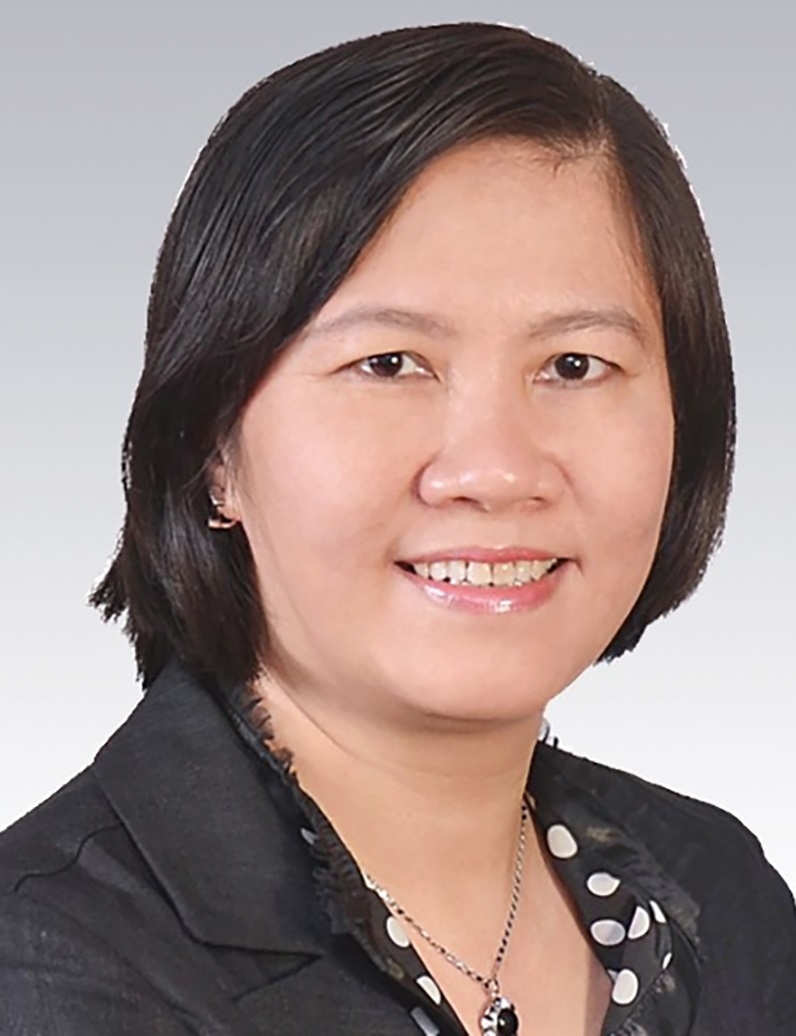Compulsory patent licensing for crucial vaccines in Vietnam
 |
| Nguyen Thi Hong Anh, partner and head of the IP and Technology Practice Group at Indochine Counsel |
In the context of the pandemic’s renewed spread, several proposals for the temporary waiver of patent rights for inventions relating to vaccines have been made by a number of countries, including South Africa and India. This is so that poor and developing countries may more conveniently access vaccines and respond to the health challenges.
Such a proposal has been supported by the directors of the World Trade Organization and the World Health Organization, as well as United States President Joe Biden, but most countries in the European Union still strongly oppose temporary waivers of patent rights as they may reduce vaccine manufacturers’ profits and, therefore, discourage technology innovation and creation.
The proposal for temporary waivers of patent rights is based on the Doha Declaration within the Agreement on Trade-Related Aspects of Intellectual Property Rights (TRIPS) which reaffirms the flexibility of its member states in circumventing patent rights for better access to essential medicines by developing countries with insufficient or no manufacturing capacity in the pharmaceutical sector.
In TRIPS, provisions relating to the compulsory licensing of patent rights are provided in Article 30 and 31. The 2005 Law on Intellectual Property of Vietnam, as amended in 2009 and 2019 (IP law), and its guiding regulations, have included certain provisions which conform with Article 31 of the TRIPS agreement of which Vietnam is a member state.
Under Vietnam’s IP law, patent owners are obliged to use their patented inventions, meaning they must manufacture protected products or apply protected processes in their invention, to satisfy the requirements of national defence and security, disease prevention, and treatment and nutrition of the people or to meet other social urgent needs.
In addition, patent owners may also be compelled to grant rights to their patent for eligible dependent inventions at reasonably commercial prices and conditions. A dependent invention is defined as an invention which is created based on another invention, the principal invention, and may only be used on condition that the principal invention is also used, wherein an eligible dependent invention is one that makes an important technical advance as compared with the principal invention and has great economic significance as proved by its owner. Failure to comply with these requirements may result in action by the state to compel the rights’ owner to grant the relevant rights.
In case of licensing the use of a principal invention, a licence on reasonable terms with respect to the dependent invention must be granted to the owner of the principal invention, and the licensee of the right to use the principal invention must not assign such right, except where the assignment is effected together with all rights to the dependent inventions.
Non-compliance with the obligations of using of the patented invention or licensing patent rights to owner of the dependent invention may be the grounds for the state to grant compulsory patent licenses in the second and third instances mentioned below. without the consent or agreement of the owner of the patent rights.
 |
| In some cases, the state can grant a patent licence without the consent of the owner. Photo: Shutterstock |
Cases of compulsory patent licence
There are four instances in which this may occur. First is if the patented invention is used for public and non-commercial purposes, serving national defence and security, disease prevention, and treatment and nutrition of people or other urgent social needs;
The second instance if is the holder of the exclusive usage rights fails to fulfil their obligations to satisfy the needs described under the first instance, and with the condition that the time limit of four years from the date of filing the respective patent application and three years as from the date of granting the patent for invention has passed.
Third is where a person who wishes to use the patent fails to reach a patent licence agreement with the holder, irrespective of efforts made within a reasonable time in negotiating a mutually acceptable price and conditions. The final instance is when the holder of the rights is deemed to perform anti-competitive practices prohibited by the Law on Competition.
Pursuant to this law, relating prohibited anti-competitive practices may be the abuse of a monopoly position of an enterprise.
Such practices include imposing irrational buying or selling prices of goods or services or establishing minimum resale price maintenance, which causes or possibly causes damage to customers; restricting production and distribution of goods, services, limiting markets, preventing technical and technological development, which causes or possibly causes damage to customers; or applying dissimilar commercial conditions in similar transactions, which leads to or possibly leads to prevention of other enterprises from market entry or expansion or exclusion of other enterprises.
There are other anti-competitive activities, such as imposing conditions on other enterprises to conclude goods or services purchase or sale contracts or requesting customers to accept obligations which have no direct connection with subjects of such contracts; preventing other enterprises from market entry or expansion; imposing unfavourable conditions on customers; and taking advantage of the monopoly position to unilaterally modify or cancel the contract already signed without justifiable reasons.
Where the patented invention is used for the purposes described under the first instance, the invention will be used on behalf of the state as provided in of the IP law, and the competent authorities for issuing the decisions on the grant of compulsory licensing comprise the ministries and equivalent bodies, subject to their management domains.
The competent authority in respect of the second, third, and fourth instance is the Ministry of Science and Technology. Upon granting compulsory licensing, the competent authorities must inform the holder of the exclusive rights and the National Office of Intellectual Property.
Limitations of compulsory patent licence
Per Article 146 of the IP law, the compulsory licensing of patent rights granted under decisions of the competent authorities must comply with the granted non-exclusive usage rights, with its scope and duration sufficient but limited to achieve the licensing objectives.
Further, the licence rights must neither be assigned nor sub-licensed to others, except where the assignment is effected together with the transfer of the licensee’s establishment; and the licensee must pay the holder of the patent rights a satisfactory compensation depending on the economic value of such licensed right in each particular case and compliant with the compensation framework stipulated by the government. However, so far, there has been no such framework provided.
The holder of the exclusive usage rights for a patented invention shall have the right to request termination of the granted licence when the prescribed grounds for the compulsory licensing no longer exist and are unlikely to recur, provided that such termination shall not be prejudicial to the related licensee.
There has only been one case relating to compulsory licensing of patent rights in Vietnam, which occurred in 2005 when Vietnam was faced with a critical shortage of a drug in within the bird flu pandemic caused by the H5N1 virus. In that situation, the government approached Swiss pharma company Roche and negotiated a licence for producing Tamiflu by a Vietnamese company for meeting the emergency needs.
It was an intention of the Ministry of Health that in case no licence agreement had been reached with Roche, the ministry would have suspended the patent rights in question of Roche and authorised one or more Vietnamese companies to manufacture the drug for non-commercial purpose based on the 1995 Civil Code and a related government decree from 1996. Fortunately, Roche agreed with the ministry to grant such a licence to a Vietnamese company selected by itself for manufacturing the drug.
In light of these provisions, it is possible for Vietnam’s government to either suspend or compel the licensing of COVID-19 vaccines for emergency needs of disease prevention. The practicality, however, is less certain as the technology to produce the vaccines remains in the hands of foreign entities.
What is more likely is that once the locally-developed vaccines are approved, the government could order their creators to allow the compulsory licensing of such vaccines to accelerate the distribution. Hopefully, neither case will become necessary and the government’s goals of vaccinating the population will be met with voluntarily provided IP rights.
What the stars mean:
★ Poor ★ ★ Promising ★★★ Good ★★★★ Very good ★★★★★ Exceptional
Related Contents
Latest News
More News
- Legal protections for local companies (May 08, 2025 | 10:39)
- Drawing insights from data law draft (March 27, 2025 | 15:00)
- Sandbox for crypto assets in Vietnam: if not now, when? (March 11, 2025 | 11:34)
- Securities law reflects alignment efforts (February 25, 2025 | 10:42)
- New law marks shift for electricity market (February 12, 2025 | 14:30)
- Indochine Counsel launches new corporate identity (September 23, 2024 | 06:52)
- Key developments for ID's at credit institutions (April 24, 2024 | 16:30)
- Virtual assets in Vietnam: a regulatory outlook (January 04, 2024 | 17:11)
- Investors must be wary of the status of digital assets (June 12, 2023 | 12:13)
- Nuts and bolts of new personal data decree (May 09, 2023 | 15:00)

 Tag:
Tag:




















 Mobile Version
Mobile Version